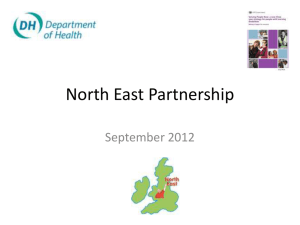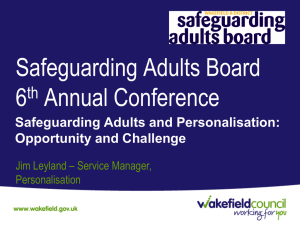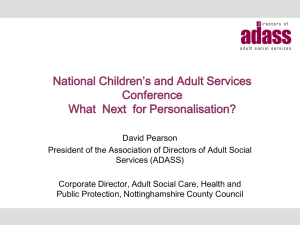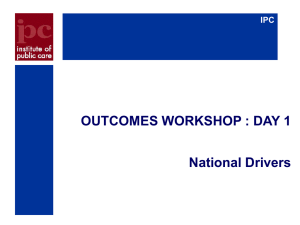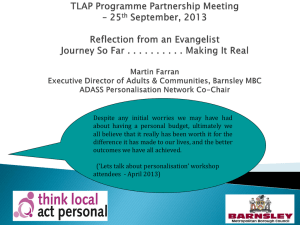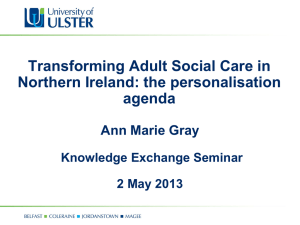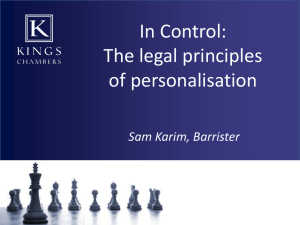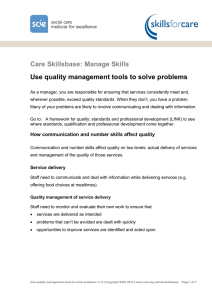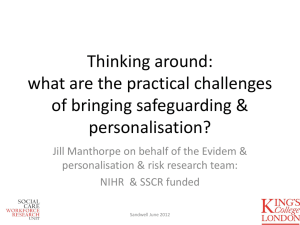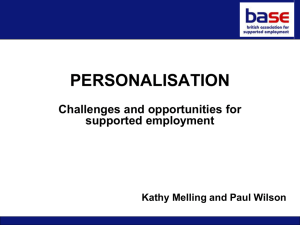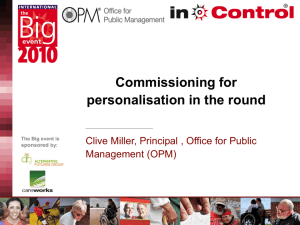TLAP Call for Evidence Description and Form
advertisement
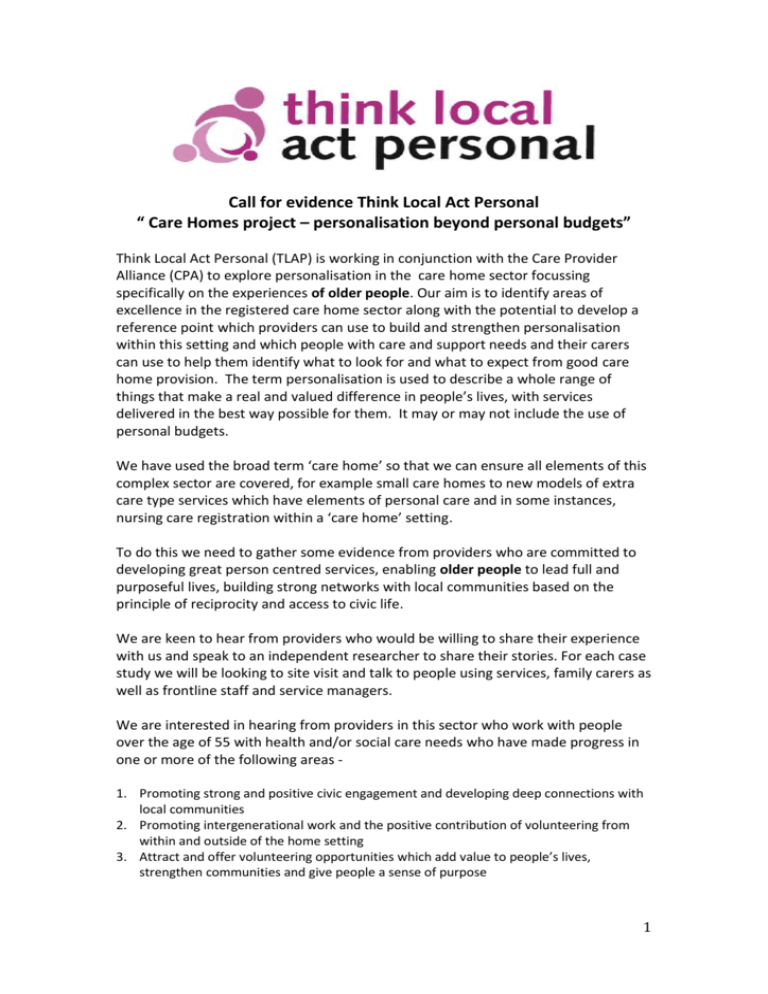
Call for evidence Think Local Act Personal “ Care Homes project – personalisation beyond personal budgets” Think Local Act Personal (TLAP) is working in conjunction with the Care Provider Alliance (CPA) to explore personalisation in the care home sector focussing specifically on the experiences of older people. Our aim is to identify areas of excellence in the registered care home sector along with the potential to develop a reference point which providers can use to build and strengthen personalisation within this setting and which people with care and support needs and their carers can use to help them identify what to look for and what to expect from good care home provision. The term personalisation is used to describe a whole range of things that make a real and valued difference in people’s lives, with services delivered in the best way possible for them. It may or may not include the use of personal budgets. We have used the broad term ‘care home’ so that we can ensure all elements of this complex sector are covered, for example small care homes to new models of extra care type services which have elements of personal care and in some instances, nursing care registration within a ‘care home’ setting. To do this we need to gather some evidence from providers who are committed to developing great person centred services, enabling older people to lead full and purposeful lives, building strong networks with local communities based on the principle of reciprocity and access to civic life. We are keen to hear from providers who would be willing to share their experience with us and speak to an independent researcher to share their stories. For each case study we will be looking to site visit and talk to people using services, family carers as well as frontline staff and service managers. We are interested in hearing from providers in this sector who work with people over the age of 55 with health and/or social care needs who have made progress in one or more of the following areas 1. Promoting strong and positive civic engagement and developing deep connections with local communities 2. Promoting intergenerational work and the positive contribution of volunteering from within and outside of the home setting 3. Attract and offer volunteering opportunities which add value to people’s lives, strengthen communities and give people a sense of purpose 1 4. Actively combat loneliness and focus on maintaining and building people’s sense of identity and community whilst they are living in the home. 5. Have a strong person centred culture and leadership which focusses on developing great interactions between people everyday and invests in a values based approach to recruitment. 6. Take a positive approach to risk which looks beyond keeping people safe and encourages people’s right to take risks. 7. Increase people’s levels of Choice and control in their everyday lives e.g. personalised approaches to staffing, use of Individual Service Funds ,…. 8. Build Co-production, democracy and citizenship – giving people using services a clear and tangible say in how services are developed and run, along with how this influences strategic development or decisions. 9. Understand and harness the gifts and talents of people using services and provide a variety of opportunities for people to use those gifts skills and talents to give something back to their local community 10. Development of innovative services which can support people with care needs within local communities to live at home, e.g. through providing respite care, reablement services or outreach training provision from the home. To help us capture the best set of evidence possible, we are asking interested parties to submit a short case study using a modified version of SCIE’s Good Practice Framework set out below. Please feel free to bullet point or list – we are not looking for perfectly set out structured written piece! Please send your examples by no later than Friday 18th September. Early submissions will be welcomed. Where possible we will be aiming to follow up submissions with visits to sites during November 2015 to interview key stakeholders including people receiving support, service managers and Carers. Please indicate if you are able to accommodate a follow up visit in your answer to question 8. Name, address and contact details of your organisation and a brief description of your service : Eg are you a registered care home, care home with nursing, extra care facility….? 1. Briefly describe your innovative practice/changes to ensure delivery of personalised support. Please reference which areas of best practice outline above best fit your example 2 No more than 200 words 2.Briefly describe what changes were made to put your example into practice, including timescales and the number of people involved. No more than 150 words 3. What have been the outcomes for the people you support and what have they said about it? No more than 150 words 4. How have these outcomes been identified and measured? For each of the outcomes identified above, explain how you know outcomes have been achieved and how success was measured. Measurement could be quantitative,by asking people, observing people, or a combination of both. 3 No more than 150 words 5. What involvement did you have from local commissioners and do you have information about what other key stakeholders thought about changes? No more than 150 words 6. Briefly describe what you have learned, what worked well and what not so well, what helped and what got in the way? No more than 150 words 7. What resources did you use to achieve the outcomes and what were costs and benefits of the changes? No more than 150 words 4 8. Would you be willing to accommodate a site visit for a researcher to follow up this questionnaire and interview key local stakeholders for your service? If so, please include contact details and we will be in touch Please email this completed form to Corinne.moutou@scie.org.uk by no later than Friday 18th September 2015 Thankyou 5
